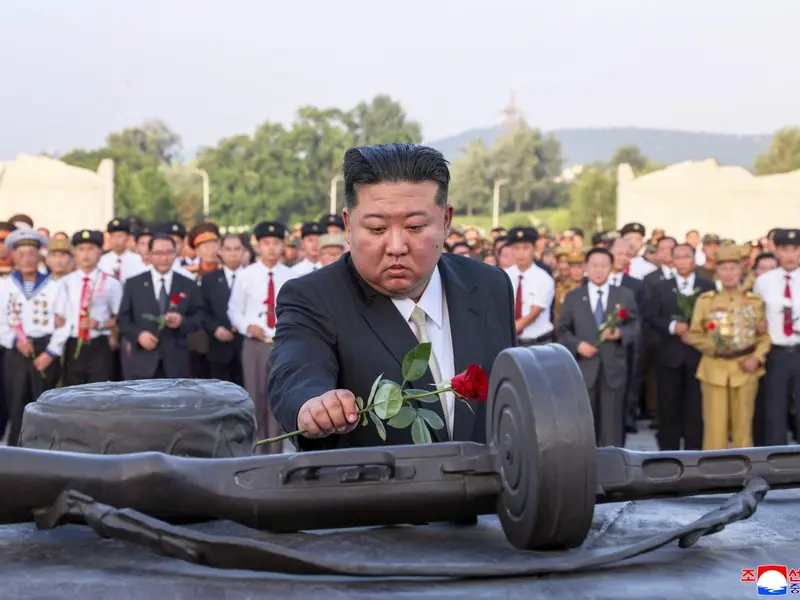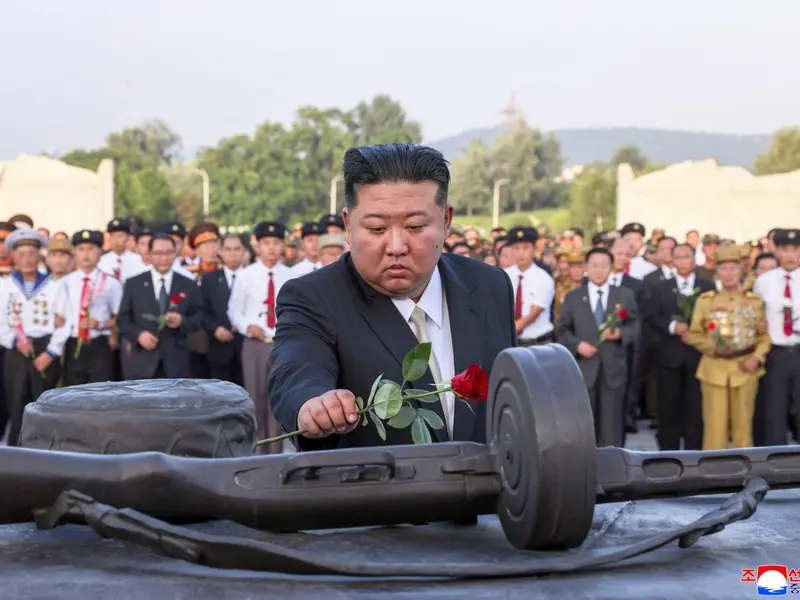On Sunday, July 27, North Korean leader Kim Jong-un declared his nation’s determination to prevail in its ongoing “anti-imperialist, anti-U.S.” efforts, coinciding with the 72nd anniversary of the Korean War armistice. According to state media, Kim expressed confidence that North Korea would successfully fulfill its goal of becoming a prosperous nation with a powerful military, stating that the country and its people would ultimately triumph in the confrontation against imperialism and the United States.
Tributes to Chinese Volunteers and Kim Il-sung
A day earlier, Kim paid tribute at the Friendship Tower in Pyongyang, laying a wreath to honor the Chinese People’s Volunteers who fought during the Korean War. He pledged that North Korea would forever remember their sacrifices, as reported by the Korean Central News Agency (KCNA).
In a separate act of remembrance, Kim placed a floral arrangement at the statue of his grandfather and the nation’s founder, Kim Il-sung. He praised the late leader’s military ideology and strategy, highlighting the Juche-based war tactics as instrumental to North Korea’s perceived past victories.

Signals of Self-Reliance in Diplomacy
According to Yonhap News Agency, which cited comments from Professor Lim Eul-chul of Kyungnam University’s Institute for Far Eastern Studies, North Korea appears to be downplaying its alliance with China. This approach suggests Pyongyang is emphasizing its ability to maintain sovereignty and independence in both diplomatic and military spheres without relying heavily on its traditional ally, thereby asserting its autonomy without alienating Beijing.
No Direct Threats Toward the U.S. or South Korea
Despite reaffirming his opposition to U.S. influence, Kim refrained from issuing any direct threats against either Washington or Seoul during his public remarks.
Background: The Korean War Armistice
The Korean War armistice, signed on July 27, 1953, formally halted the three-year conflict. The agreement was signed by U.S. military officials representing United Nations forces in support of South Korea. Since 1996, North Korea has commemorated the day as “Victory Day,” asserting that it successfully repelled what it refers to as U.S.-led aggression during the war.



